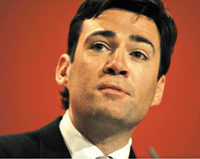
Health secretary Andy Burnham announced plans to create a national care service to provide all eligible users with free care and support but delayed any decision on how it would be funded, in a White Paper on reform, published on 30 March.
The announcement has been welcomed by many social care leaders, amid concerns over a lack of detail on funding, but care providers and groups representing working-age adults have attacked the proposals. The government’s political opponents have rejected many of the plans.
Building the National Care Service said funding reform would proceed in three stages, starting with:-
- The introduction of free personal care at home for people with high needs from 2011, under the current Personal Care at Home Bill, which the government believes will cost £670m a year.
- The introduction of free personal care for people who have already spent two years in residential care for the rest of their time in a care or nursing home, from 2014. This would cost £800m a year.
- The creation of the national care service some time after 2015, following the next general election but one and the report of a cross-party commission on how it should be funded. It would cost an additional £4.4bn a year.
The government said that during the second stage of reform it would retain attendance allowance and disability living allowance for pensioners before the full creation of the national care service, but did not rule out transferring funding from the benefits to finance the new service.
The reforms would also include a national system of assessment and eligibility for care, ending the postcode lottery, though the White Paper stressed that the national care service would be led by councils, not a central agency.
Councils and the NHS would also be required to work together to deliver adult social care, in part to release £4bn in extra annual resources for services from 2014 onwards. Though plans to improve joint working were welcomed by sector leaders, there was scepticism about the £4bn savings target.
Other proposals include for all service users who can benefit from a personal budget to be given one from 2012 – well above a current target for 30% of eligible users to be receiving a PB by 2011. Experts were divided over whether the target was achievable.
The White Paper also announced plans to reform social care workforce regulation, with the General Social Care Council becoming a General Social Work Council (GSWC), and the oversight of other social care workers transferred to the Health Professions Council, which would be renamed the Care Professions Council.
The 1.5m non-social work staff would be invited to join a voluntary licensing scheme, designed to increase standards and safety for users, however this was rejected as “pointless” by safeguarding charity Action on Elder Abuse, and also criticised by Unison.
Plans to remove government funding for the proposed GSWC over time, making it increasingly dependent on social worker contributions, were criticised by the British Association of Social Workers, who warned that registration fees would soar.


 Family help: one local authority’s experience of the model
Family help: one local authority’s experience of the model  ‘I spent the first three months listening’: how supportive leadership can transform children’s services
‘I spent the first three months listening’: how supportive leadership can transform children’s services  How senior leaders in one authority maintain a culture of excellence
How senior leaders in one authority maintain a culture of excellence  How staff support ensures fantastic outcomes for children and families
How staff support ensures fantastic outcomes for children and families  Workforce Insights – showcasing a selection of the sector’s top recruiters
Workforce Insights – showcasing a selection of the sector’s top recruiters 

 Facebook
Facebook X
X LinkedIn
LinkedIn Instagram
Instagram
Comments are closed.